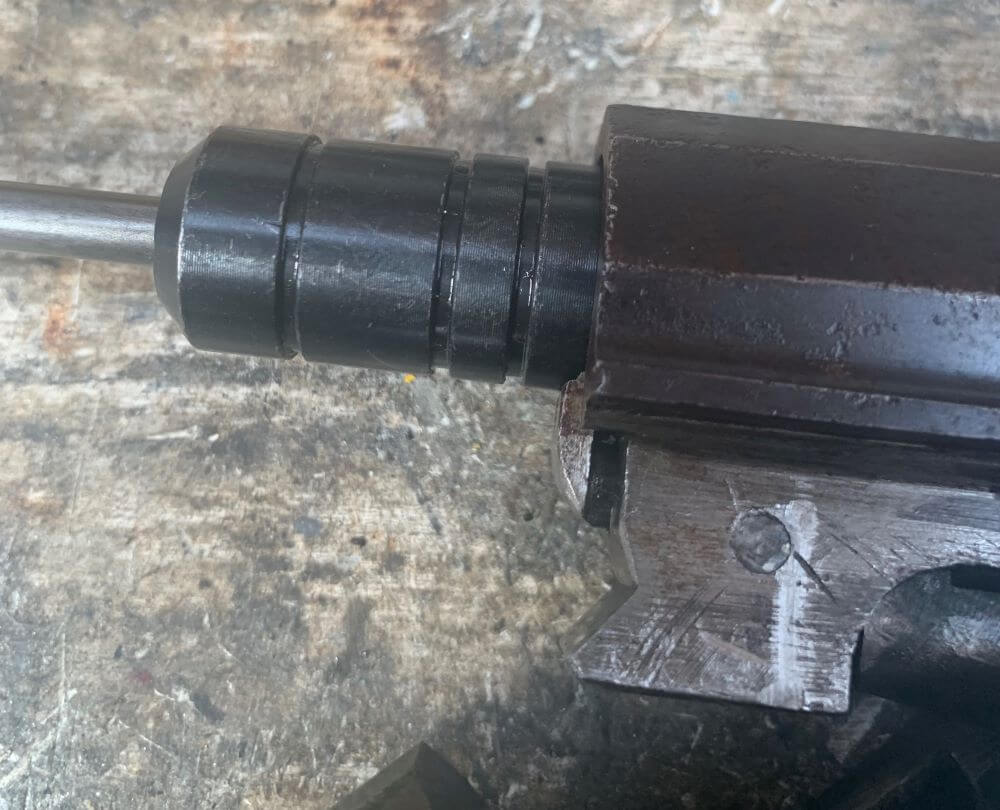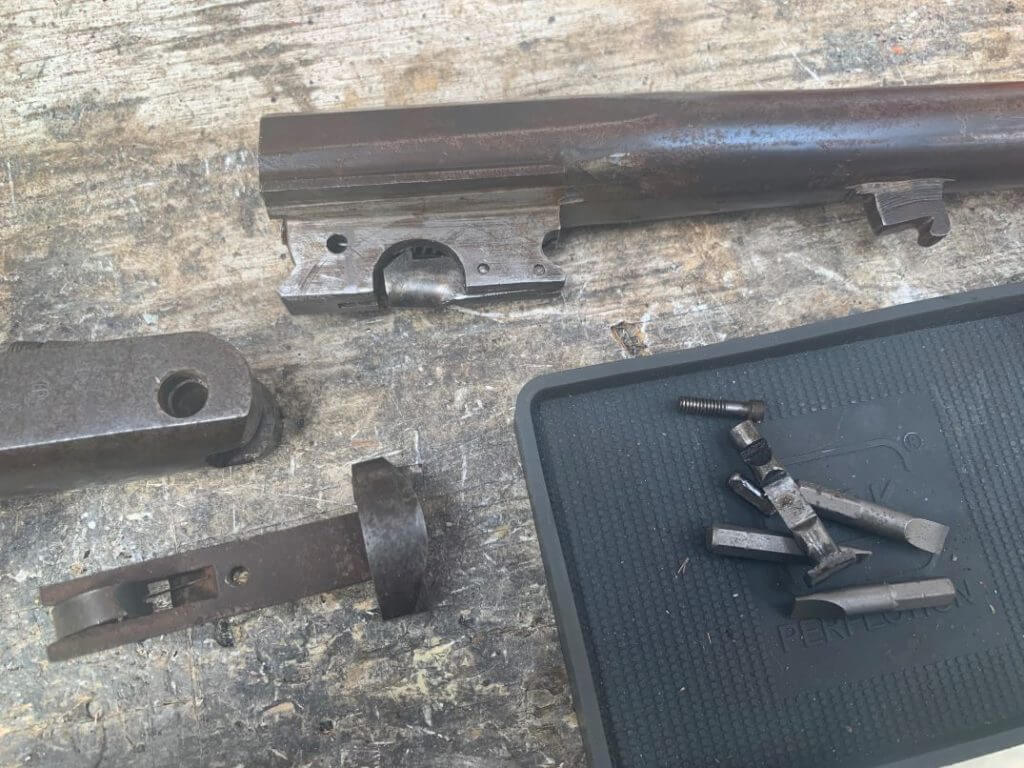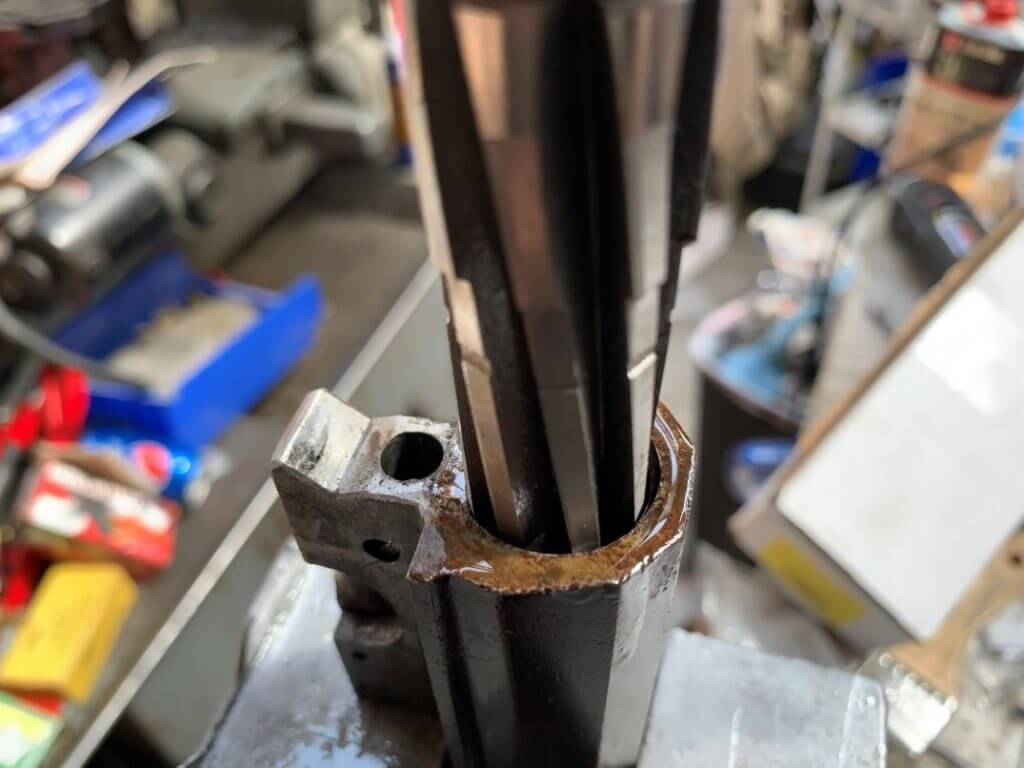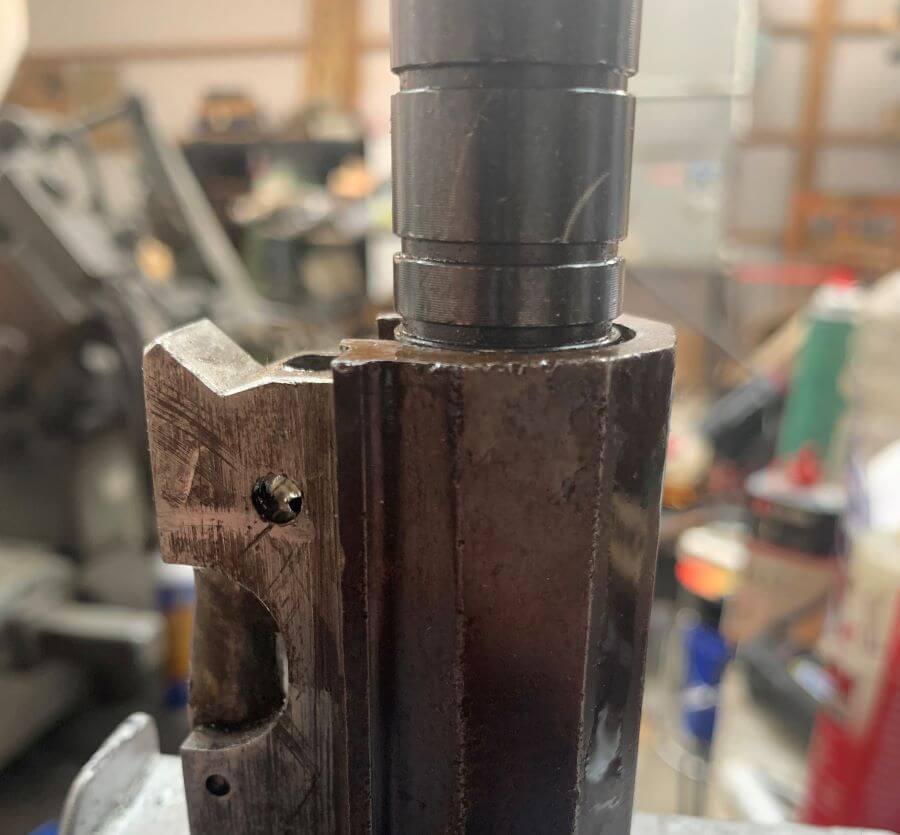
As you folks reading this are certainly aware, everything related to firearms and ammunition has been in short supply for the last year or so. As such, more and more folks are looking to press older weapons back into service with more modern firearms not available. An older firearm is certainly better than none at all. However, a lot of older weapons need some work before they’re ready for use.
Break action shotguns are extremely common weapons. They have been produced since the black powder era, and are still in production today. They’re still quite adequate as self-defense weapons in all but the more dire of circumstances. However, “Grandpa’s old double-barrel” may very well need some work before you load it up with your favorite defense load. In a previous article, I discussed dealing with one common malady of these old shotguns, excess headspace. In this article, I’m going to cover another common issue: chamber length.

As I mentioned, break action shotguns have been produced for a long time. For the last few decades, shotguns have had standardized chamber dimensions. However, this hasn’t always been the case. Shotgun chamber lengths didn’t even begin to have standard lengths until after 1900. Each manufacturer basically just did their own thing. And even after that, there were some odd, shorter lengths for some time afterward. In 12 gauge, for example, 2 ½” and 2 5/8” chambers were produced. What’s more, lots of break action shotguns were imported from overseas in the early part of the last century, and their chamber lengths may not be the same as American made chambers. The problem arises when you put a modern 2 ¾” shell into them. The shorter chamber will usually still allow the shell to go in, but it won’t allow the modern folded crimp to open all the way when it is fired. The result is a dramatic increase in pressure, to the point of pushing light loads into proof load territory. Obviously, this doesn’t bode well for “Grandpa’s old double-barrel”. Fortunately, this situation can be resolved with a little bit of gunsmithing. This problem is not exclusive to break action shotguns and may be found in other types of older shotguns such as pump actions. However, it is probably most prevalent in break actions, so that’s the type I’m discussing for this particular project.
Before beginning this project, there are some things to consider. First, you need to be sure that the shotgun in question is suitable for use with modern ammunition at all. There are lots of old black powder shotguns floating around that are just not safe for use with any ammunition other than black powder, even if they were to be reworked. So you need to be sure of exactly what you have before beginning. Also, the shotgun in question may have other issues that need to be dealt with before the chamber length. You can deal with excess headspace at the same time as lengthening the chamber. But if the action is loose, you’ll have to deal with this before taking on headspace or chamber length. Something else to keep in mind is that you need to keep your project sane. You really shouldn’t attempt to ream the chamber of a 100-year-old 12 gauge shotgun with 2 ½” chambers to accept 3 ½” magnum shells.
Fortunately, this project doesn’t require a whole lot of tooling. You need a shotgun chamber gauge, a chamber reamer of the appropriate size, a handle to turn it of some kind (I used a tap wrench), some cutting oil (like Tap Magic or something similar), and a hone & honing oil to smooth things up when you’re done. Obviously, chamber reamers are not exactly inexpensive. But if you only have one or two shotguns that need this work, you can rent the chamber reamer rather than buy one.

The shotgun that is the subject of this article is an old Stevens 12 gauge single shot. The first step is to check to see what your chamber length actually is. Brownells sells a gauge set specifically for this purpose. The chamber needs to be good and clean to make sure you don’t get an incorrect measurement. The gauges are marked by the common chamber lengths for their caliber. One end is threaded to take a handle. While you can use them without it, I found them much easier to use with the handle. The chamber length was definitely shorter than the 2 ¾” that we’re after. So the next step is to completely disassemble the barrel assembly. Typically, this will involve removing the front handguard to start. Remove the extractors and/or ejectors, which are typically held in with screws. Be careful here, as a lot of these old shotguns are extremely hard to find schematics or instructions for and sometimes they can be different than what I described.

With the barrel assembly disassembled, it was time to ream the chamber. Reaming the chamber is fairly simple. If it isn’t already, assemble the components of the chamber reamer. Liberally apply cutting oil to the reamer and the chamber. Then begin rotating the reamer to cut the chamber. Make sure you turn it in the right direction, as turning it in reverse will dull the cutting edges. Don’t be in a hurry. Take your time, go slow, and stop frequently to check your progress with the chamber length gauge and clear the chips from the reamer. That last part is extremely important as a chip stuck on your reamer will scratch up your chamber wall. You want to stop right before you start cutting in the rim recess, as this is the critical headspace dimension for a shotgun. Once you have cut the chamber to length, use the hone and its oil to smooth out the chamber. Lastly, clean out the barrel. Make sure all of the metal chips and abrasive from the hone are completely cleaned out, as obviously, these would not be good to have in the barrel when you fire it.

Break action shotguns can still be perfectly serviceable weapons. However, a lot of older shotguns were designed to use ammunition that is no longer commonly available. By reaming the chamber in the manner I described, you can make these old workhorses compatible with modern ammunition. With a little bit of thought and research, you could also use this technique to work on pump-action shotguns, or even autoloaders as well. It’s not a terribly difficult or time consuming project to accomplish, and it’ll allow you to safely put “Grandpa’s old double-barrel” back into use. Until next time, happy ‘smithing!

Where can i get a 12ga 2.75-3.5 chamber gauge like the one in your pic’s..
Were can I buy a chamber length gauge like the one in the picture ?
I have tried Amazon , Brownell’s & Ballistic products with now luck.
Thank you
Luckily my only shotgun is a German Bayard in 16 gauge with 3” chambers.